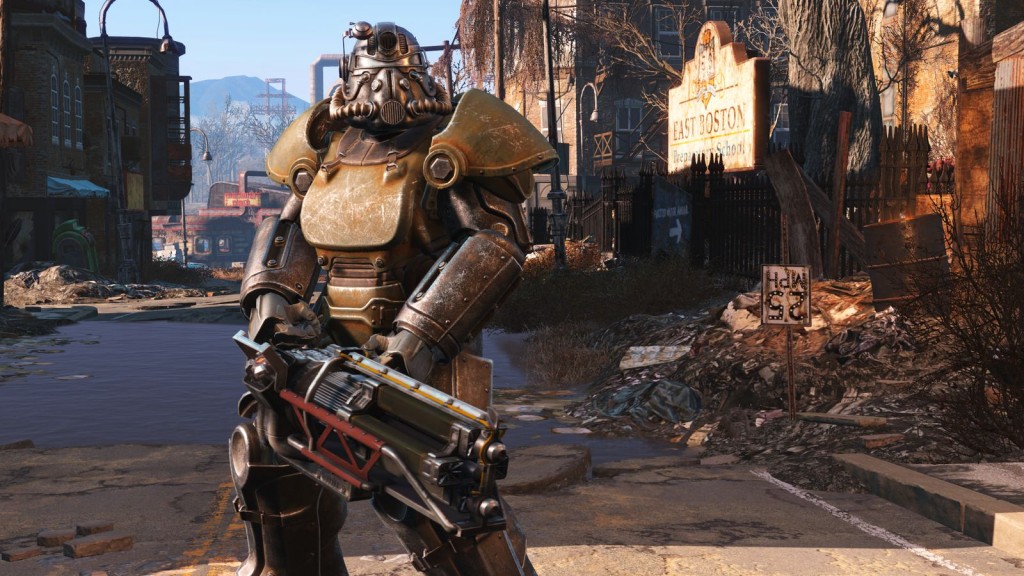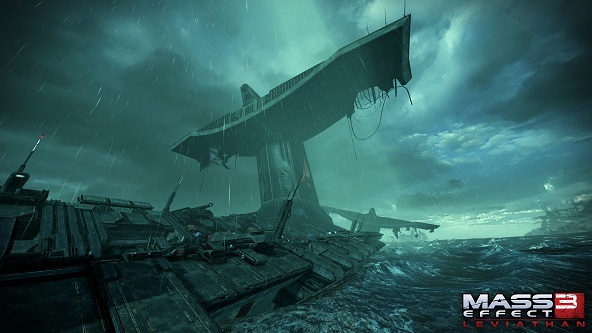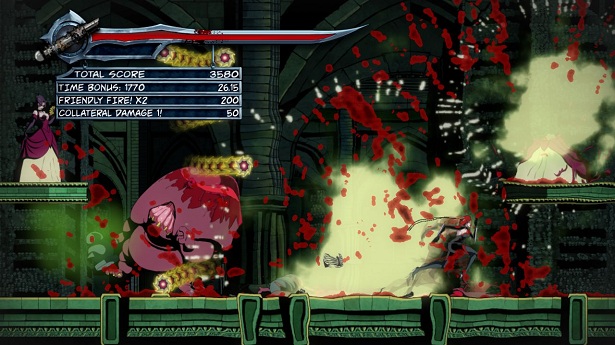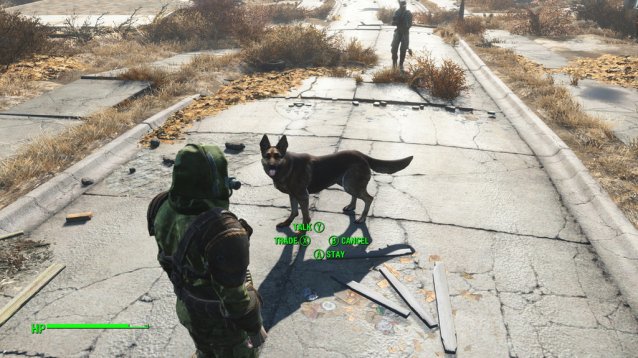

Part of the reason why Amnesia: The Dark Descent is scary is because it often leaves you feeling vulnerable and lost in a foreboding world. Its twisted narrative, creepy visuals, and disturbing enemies intensify these feelings and turn it into an enjoyable and intriguing journey into darkness. It’s unfortunate, then, that Amnesia: A Machine for Pigs gets rid of some of these scare tactics and leaves you with a diluted experience that’s neither frightening nor as memorable as the first. Since the darkness is never a problem anymore and your threats are almost non-existent, you might wonder if there’s anything to be afraid of at all.
Machine for Pigs follows the hazy journey of a wealthy industrialist named Oswald Mandus, who wakes up suffering from amnesia wondering where his children are. Following in the original’s footsteps, you uncover more about his memories and past actions listening in on conversations he remembers throughout the game and finding diary entries that help build a mysterious backstory. Its plot may seem vague at first, but it slowly comes together towards the game’s conclusion when you realize who Mandus is and what he’s done. What you discover isn’t as shocking as you’d expect--in fact, it’s almost rather predictable--but that doesn’t mean it’s not disturbing.
"Amnesia: A Machine for Pigs...leaves you with a diluted experience that’s neither frightening nor as memorable as the first.
It’s not so much what you see or do that gives you the creeps but rather what you find out about Mandus that might make you stay on guard. Machine for Pigs doesn’t feature gory visuals or flesh-ridden walls like its predecessor, nor does it feature graphic visuals or deceptive illusions. Much of the game’s strength lies in its implied horror that you never see but only read about. You'll be teased into thinking something of substance is just around the corner, but after a couple of hours of slow-pacing, you'll realize nothing is coming. These feelings of suspense and tension build up with each document you read, but they simply plateau and never reach a climax worth remembering.
Besides simply exploring your environments and remembering where you need to go, most of your time will be spent solving puzzles or figuring out how to open the way forward. In addition to the feeling of accomplishment and progress such obstacles give you when you solve them, these simple puzzles also force you to venture into your unknown surroundings for their solution. You’d expect something to happen when you finally manage to start up an old generator; instead, you are treated to nothing even remotely surprising or shocking. Machine for Pigs wastes these opportunities and conditions you to expect the same, uneventful results every time.
"...after a couple of hours of slow-pacing, you'll realize nothing is coming."
While the original uses sanity effects to play with your senses and complement its narrative, A Machine for Pigs does away with these mechanics and makes it almost too easy to never fear the darkness again. Even finding a light source is no longer a problem since you now have a lantern that never burns out. This not only destroys any feelings that being alone in the dark creates, but it also leaves you feeling overpowered and immune to anything the game throws at you--on the rare occasions that it actually does, anyway. The environments may be obscure and mysterious, but because you can shine your light on them whenever you want, they no longer pose a threat and make finishing the game a little too easy.
To make matters worse, A Machine for Pigs doesn’t feature many enemy encounters, nor does it make you feel like your life is at risk during your four-hour journey. When you do run into a deformed pig-monster limping in your surroundings, you simply need to avoid engaging it to stay alive. Mandus is still defenseless, after all, and the most he can do is run and hide. Enemies move at such a slow pace and simply ram into you without doing much damage that you never really feel threatened even when you’re being chased down. These pig-like creatures won’t give you the creeps either, unless, of course, you suffer from swinophobia--and even then, their squealing will make you laugh before it makes you tremble.
"...A Machine for Pigs...makes it almost too easy to never fear the darkness again."
Besides some of the questionable noises you might hear, environmental sound-effects like thunderclaps and creaking doors manage to breathe some life into the spooky interiors. However, they don’t add much to the experience or make you feel like you’re in danger. Some of the game’s voice acting also makes it difficult to care for Mandus or consider him an interesting protagonist. He doesn’t sound believable as a worrisome father looking for children, and even by the end of the game he still lacks personality. When it comes down to it, the use of sound doesn’t do a good job of creating the desired ambiance you'd expect in a survival-horror game.
A Machine for Pigs is ultimately disappointing because you never have to worry about running out of resources or being scared of the dark. What you’re left with is a slow-moving game that lasts a few hours and leaves you feeling cheated and your expectations unfulfilled. Even if you suffer from a fear of the dark, pigs, or the genre in general, don’t expect to be plagued by nightmares after playing it.
This game was reviewed on PC.




 Fallout 4 Guide: How To Increase Inventory Space
Fallout 4 Guide: How To Increase Inventory Space Lego Marvel Superheroes Gold Brick Location Guide
Lego Marvel Superheroes Gold Brick Location Guide Child of Eden Review Round-up: Probably The Best Game on Kinect
Child of Eden Review Round-up: Probably The Best Game on Kinect Dead State Video Walkthrough [w/ James!]
Dead State Video Walkthrough [w/ James!] I Followed Click Bait Internet Ads, Here's What I Found
I Followed Click Bait Internet Ads, Here's What I Found